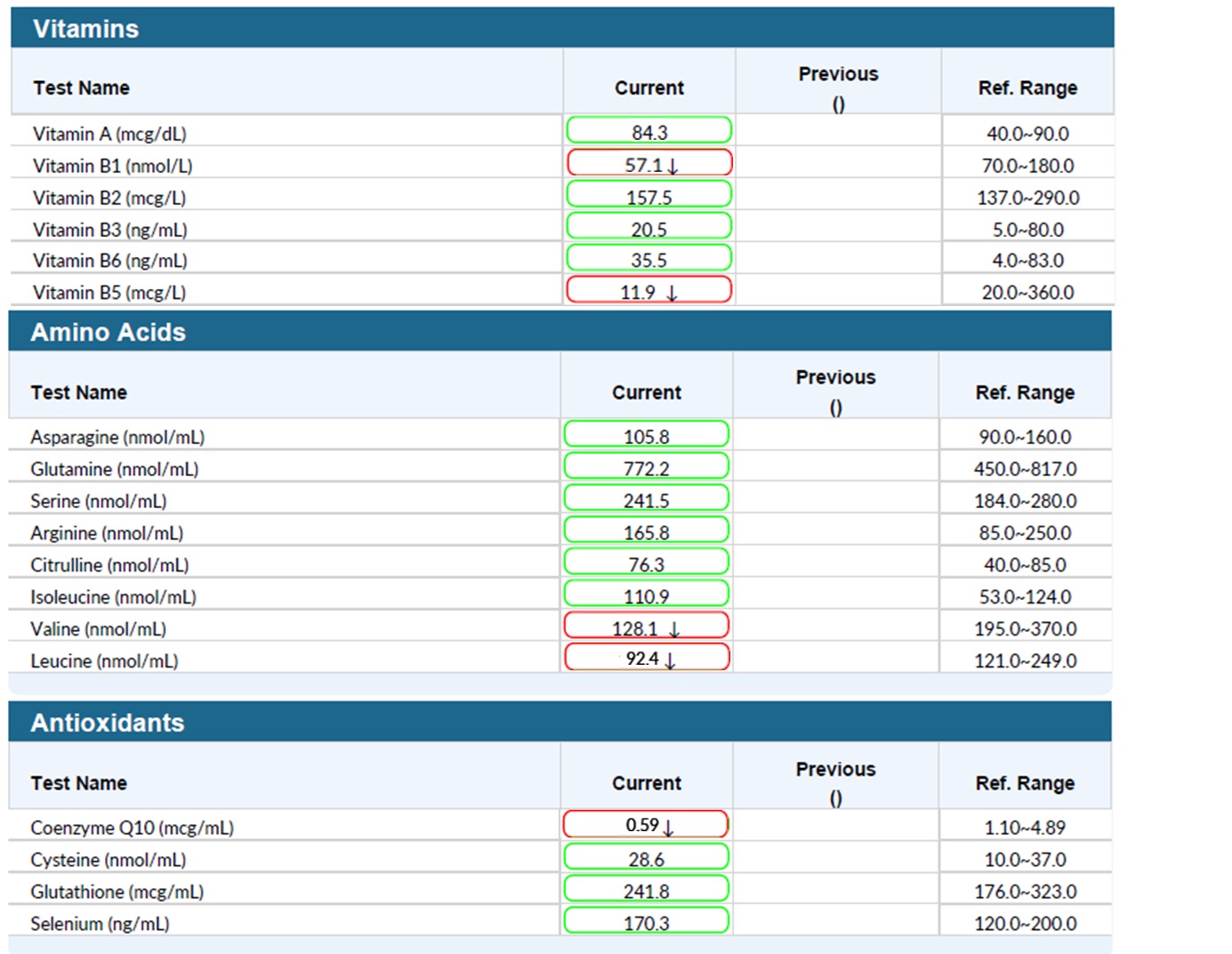At Home Whole Blood Nutrient Profile


At Home Whole Blood Nutrient Profile
€430.00
Testing your levels of nutrients will allow your nutritionist to identify any gaps you may have and tailor their nutritional recommendations to meet your specific requirements. This is a very comprehensive panel which can be carried out from your own home.
Who can benefit from this test?
As this is a test of a wide range of vitamins and minerals, it is useful for optimising general health or with respect to a certain health condition, optimising your fertility or for healthy ageing.
If you cannot attend the clinic for phlebotomy, this test may be carried out at home.

Learn More about our At Home Whole Blood Nutrient Profile
Pin prick test (at-home)
The Whole Blood Nutrient Profile analyses of a very wide number of minerals, vitamins, amino acids and antioxidants in the body. This allows your Nutritionist to identify important deficiencies and tailor your nutrition and supplement plan for a targeted approach.
This test measures:
- Vitamins: Vitamin A, B1, B2, B3, B5, B6, C, D, E, K1, K2, Folate
- Minerals: Calcium, Manganese, Zinc, Copper, Iron, Magnesium, Selenium
- Amino Acids: Asparagine, Glutamine, Serine, Arginine, Citrulline, Isoleucine, Valine, Leucine, Cysteine
- Metabolic nutrients: Choline, Inositol, Carnitine, MMA – B12 marker
- Antioxidants: Coenzyme Q10, Glutathione
- Optional add-on: omega-3 and omega-6 fatty acids
Rachel had chronic fatigue and consistent headaches amongst other symptoms. She had been supplementing blindly, trying to support her energy production, some of which were helping but it was difficult to tell what she needed or where she might have been over supplementing.
Her At-Home Whole Blood Nutrient Profile identified some key deficiencies for her. Her Nutritionist was able to tailor her recommendations and supplement protocol according to the nutrients she needed to support her energy and metabolism.
Key findings (excerpt from test):
- Vitamin B1 thiamine deficiency and vitamin B5 deficiency, both key factors in energy metabolism
- Low levels of some amino acids which play an important role in energy production and health
- Sub-optimal vitamin D levels, important for immune function and repair
- Low level of CoQ10 which is an antioxidant and essential for mitochondrial health and energy production
